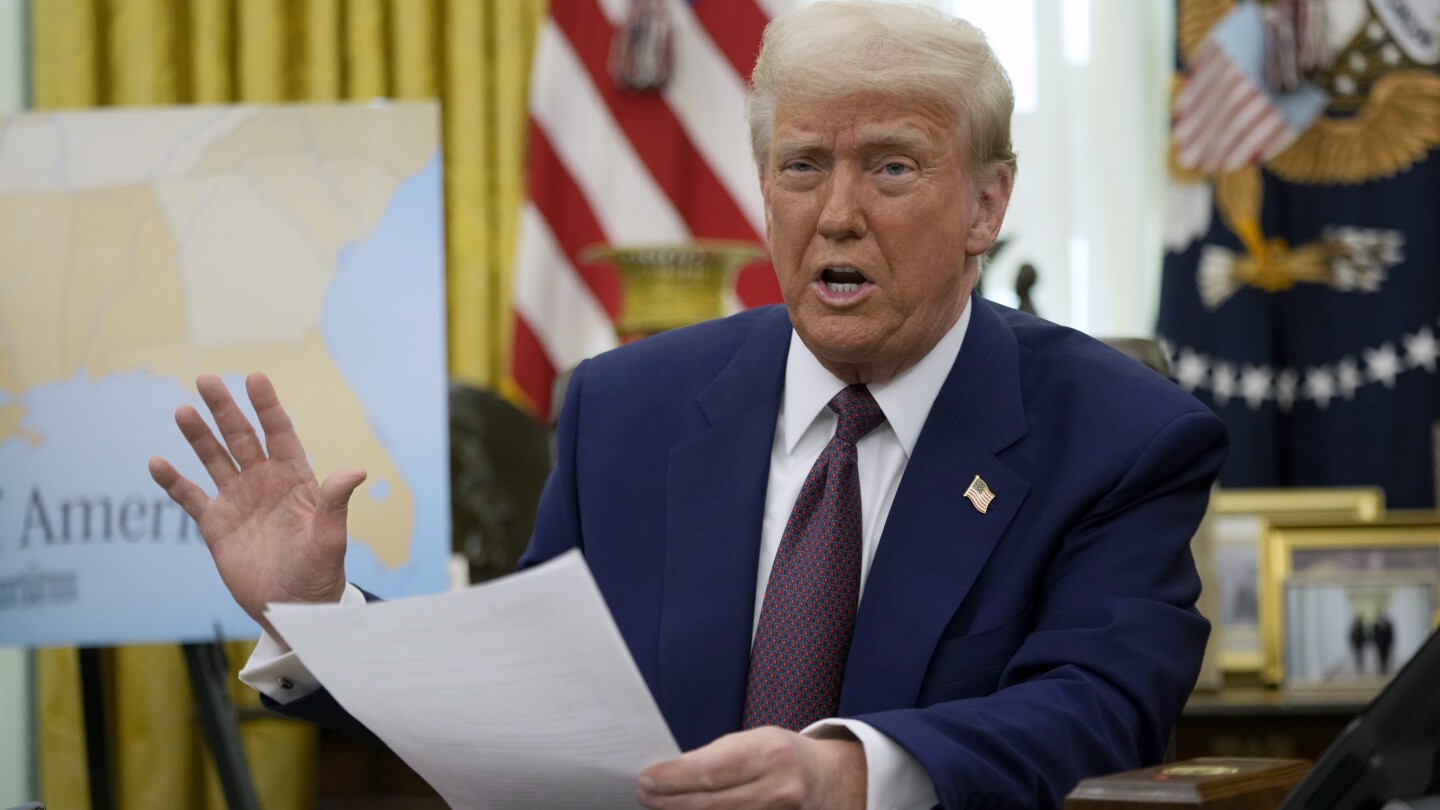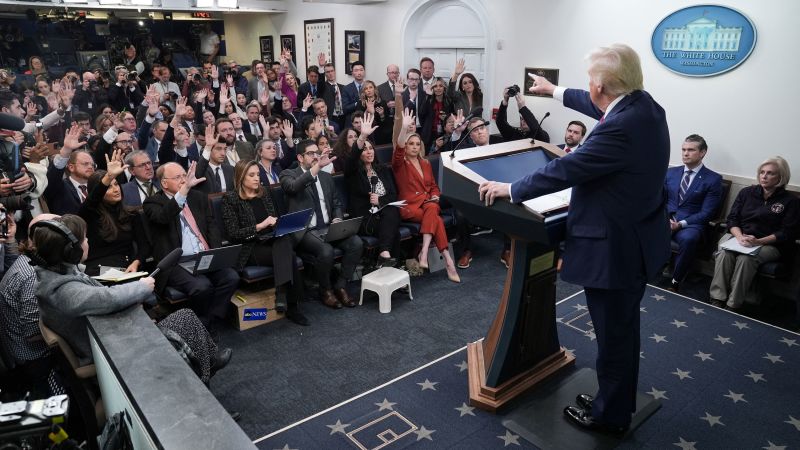In a dramatic legal development, The Associated Press has taken a bold stance against the Trump administration by filing a lawsuit against three key officials. The lawsuit, filed in U.S. District Court in Washington, accuses the administration of violating the First and Fifth Amendments by blocking AP reporters from attending certain official events.
The AP alleges that the ban imposed by the Trump administration violates the fundamental rights of the press as enshrined in the Constitution. The crux of the lawsuit revolves around the White House's demand for the AP to use specific language in its reporting, particularly concerning the naming of the Gulf of Mexico as the "Gulf of America," a designation made by President Trump through an executive order.
The legal action by the AP targets three high-profile individuals within the administration: White House Chief of Staff Susie Wiles, Press Secretary Karoline Leavitt, and Deputy Chief of Staff Taylor Budowich. These officials are being sued for their role in obstructing the AP's journalistic activities and violating their editorial independence.
The lawsuit is not just about the AP's right to choose its own words; it's about safeguarding the freedom of the press from government interference and coercion. The AP's legal team argues that the government's attempt to dictate language and restrict access sets a dangerous precedent that threatens the core principles of the First Amendment.
The AP's decision to take legal action marks a significant escalation in its ongoing battle with the Trump administration over press freedoms. The lawsuit aims to challenge the administration's efforts to control journalists and force them to conform to government-approved language, a move that undermines the principles of a free and independent press.
While the White House has defended its actions by stating that the AP remains credentialed like other news outlets, the AP's lawsuit highlights the broader implications of the ban. The AP plays a crucial role in providing news coverage that reaches millions of people worldwide, and any attempt to stifle its reporting has far-reaching consequences for press freedom.
The legal dispute between the AP and the administration underscores the delicate balance between governmental authority and press freedom. As the case unfolds in federal court, it serves as a pivotal moment in the ongoing debate over media independence and government accountability.
The AP's lawsuit has garnered widespread support from the journalistic community, with many news organizations rallying behind the agency in defense of press freedom. The outcome of this legal battle will not only impact the AP but also set a crucial precedent for upholding the rights of journalists to report without fear of retribution or censorship.
As the AP's lawsuit against the Trump administration unfolds, it serves as a poignant reminder of the enduring struggle to protect the freedom of the press in a democracy built on the principles of free speech and transparency. The legal battle represents a pivotal moment in the ongoing fight to safeguard the vital role of journalists as watchdogs of power and champions of truth.
In conclusion, the AP's lawsuit against the Trump administration is a landmark legal challenge that underscores the crucial role of a free and independent press in a democratic society. As the case progresses through the courts, it will test the boundaries of press freedom and accountability in the face of government attempts to control the narrative. The outcome of this legal battle will have far-reaching implications for the future of journalism and the protection of First Amendment rights in the United States.


